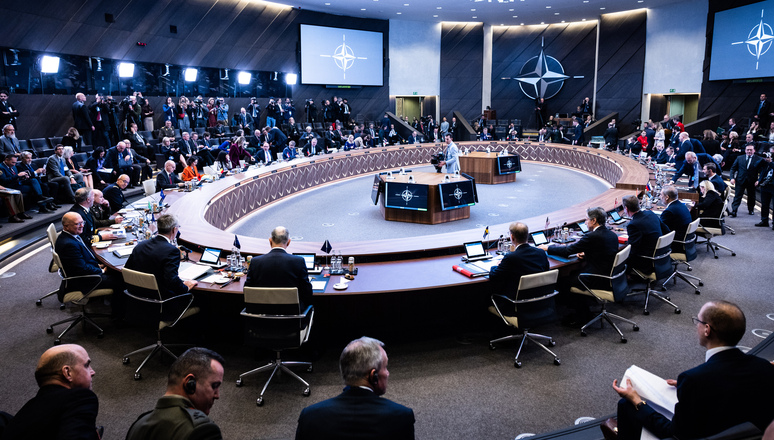
Mr. Stoltenberg said that Allies reiterated their determination to support Ukraine’s path to NATO and to support them as they defend their country. Referring to new financial pledges from Allies, a new training centre for Ukrainian pilots, and the provision of more air defences and ammunition, he said this helps to save Ukrainian lives and sends a message to Russia “that our support will not falter”.
Foreign Ministers also addressed the challenges that China presents to Euro-Atlantic security. Stressing that “China is not our adversary”, the Secretary General said that we “must be clear-eyed about the impact of China’s coercive policies on our security” and welcomed that Allies are engaging in dialogue with Beijing on issues of mutual concern. Highlighting that “the challenges we face are global”, he stressed the need to work more closely with partners, including in the Indo-Pacific, “to stand up for our values and interests”. On NATO’s southern neighbourhood, Mr. Stoltenberg said that he had appointed an independent group of experts to examine the challenges emanating from the region and that they will submit recommendations by next spring.
The Secretary General also announced that NATO Foreign Ministers had approved the Alliance’s first-ever quantum strategy and that Allies recently agreed to upgrade NATO’s AWACS fleet of aircraft, one of the Alliance’s biggest-ever capability purchases. He said this “demonstrates how NATO adds value by pooling resources to deliver major new capabilities for our security”.
NATO Foreign Ministers will also meet on Tuesday to address the situation in the Western Balkans, along with the European Union’s High Representative.
/Argumentum.al




















































